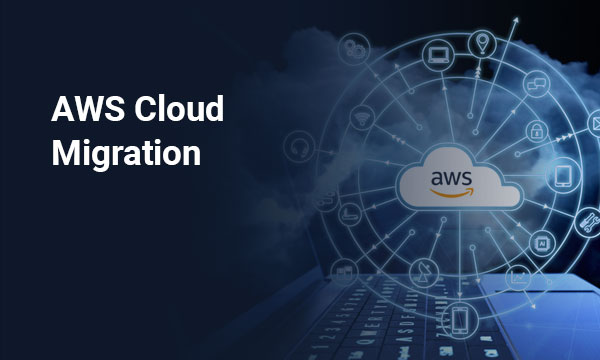What to consider when migrating to AWS? What can help you achieve your Migration goals?
 TI Infotech Pvt. Ltd.
TI Infotech Pvt. Ltd.
Introduction
Migrating to Amazon Web Services (AWS) is a difficult process, but it doesn’t have to be. With a little planning, you can make the transition as seamless as possible for your business. In this blog, we’ll look at some common questions about migrating from on-premises technologies like Microsoft Azure and Google Cloud Platform into AWS.
What are the costs?
The cost of migration is the most obvious one, but it’s also the least understood. Migrating your existing infrastructure to AWS can be an expensive process and you should consider how much money you are willing to spend before starting your migration project.
- How much will it cost? It depends on how many resources you need and how much effort goes into setting up new ones on AWS. If everything goes smoothly (or if there’s no downtime), then the total price tag might be similar or lower than what you paid for your old setup. However, if something goes wrong during migration or maintenance tasks take longer than expected due to changes in hardware specifications or software versions required by different components of your application stack (e-commerce platform vs payment system), then this could add up quickly over time – especially if those changes require significant amounts of additional effort from developers/sysadmins who haven’t been trained properly for these sorts of tasks yet!
What infrastructure do you have to maintain?
When you are choosing a cloud provider, you need to consider what infrastructure do you have to maintain. Several factors will determine the cost of maintaining your existing IT environment:
The cost of maintenance, upgrades and patches
Personnel costs associated with managing all those systems (hardware plus software licenses)
Data center space
How much time will it take?
When you decide to migrate, it’s important to consider how much time will it take. You need to start planning your migration as soon as possible so that you can make sure that the right preparations are made and no mistakes are made.
Migrating a large application can take up months or even years. It all depends on how many features of your old platform are needed in order for the new one to run well enough for its users. For example: if there are hundreds of thousands of lines of code in a legacy system and only ten percent of these lines need replacing or rewriting with new functionality (or better) then this may not be an issue at all; however, if 90%+ needs changing then things could get more difficult than expected!
Where will your data be stored?
When you’re planning your migration, it’s important to consider where your data will be stored. AWS provides many different storage options that can meet the needs of any organization. Storage options include Amazon S3, which is a pay-as-you-go cloud storage service; Amazon Glacier, which offers long-term persistent storage (LTS) at a lower cost than other services like Dropbox or Google Drive; AWS Server Migration Service Storage Gateway, which allows you to create private clouds using existing hardware; and several other types of storage available from AWS partners like EBS and EFS.
The pricing for these services depends on how much data you want stored in each instance, For Example:
S3 – $0.15 per GB per month (for up to 5 million requests per month);
Glacier – $0.003 cents per 1 million bytes ($10/month);
S3 & Glacier Together – $0.013 cents per 1 TB ($100/month).
Can you migrate your legacy applications onto AWS Lambda, API Gateway and other services that are offered by AWS?
It is possible to migrate your legacy applications onto AWS Lambda, API Gateway and other services that are offered by AWS.
AWS Lambda is a service that lets you run code on demand in the cloud. The idea behind it is that you can build web applications using just a few lines of code without having to worry about infrastructure setup or maintenance.
API Gateway offers developers an easy way to create, publish, maintain and secure APIs for their clients. This enables them to build mobile apps with an API instead of building an entire app from scratch using their own backend services or using another third-party solution like Google Cloud Platform (GCP).
Subscribe to my newsletter
Read articles from TI Infotech Pvt. Ltd. directly inside your inbox. Subscribe to the newsletter, and don't miss out.
Written by

TI Infotech Pvt. Ltd.
TI Infotech Pvt. Ltd.
TI Infotech is a premier information Travel Technology Company serving travel software services across the globe. The company was incepted in the year 2005 with "A Total Solution Approach" to provide travel portal development solutions specific to travel, tourism and hospitality industry. We have a comprehensive range of online travel booking engine exclusive for online travel agencies (OTA’s) & travel management companies (TMC’s). It provides connectivity with multiple GDS (like Sabre, Galileo, Word span etc.) and third-party suppliers for fetching the worldwide content for various services like Flight, Hotel, Packages, Transfers, Sightseeing, and Cars. Travel agency back office software completely automates the entire booking process to manage multiple sales channel (B2C, B2B, B2B2B, B2B2C).